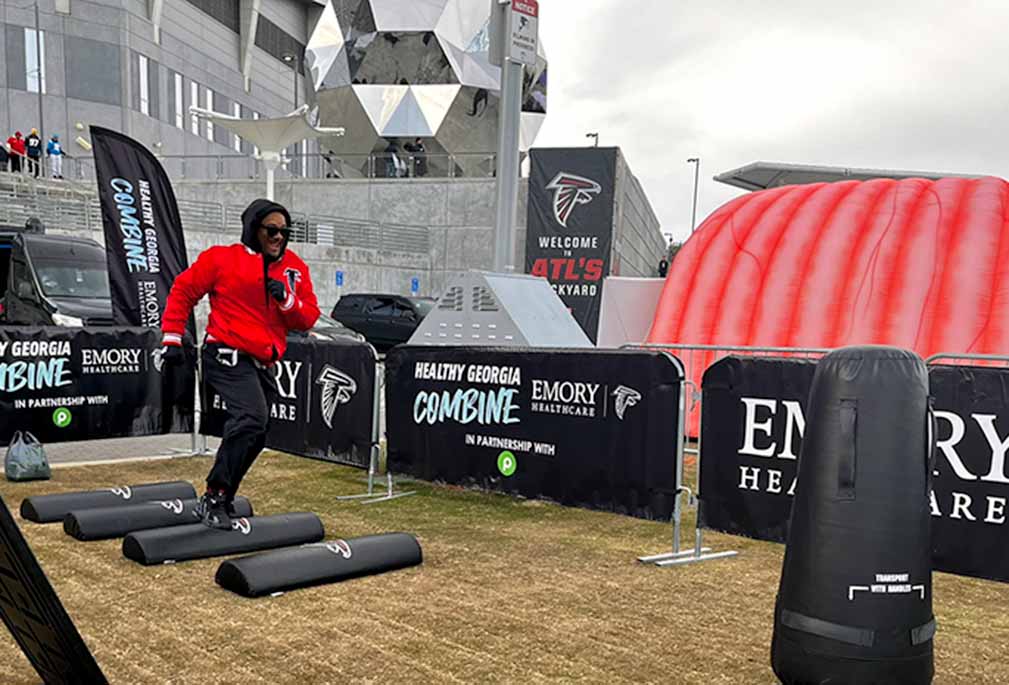You Can Get Injured Playing Either Sport
As active sports, pickleball and tennis require athletic movements. Your injury risk depends on many factors, from your age and fitness level to your style of play. For pickleballers—or maybe “picklers”—the most common injuries affect the lower extremities and include:
Tennis players can develop lower extremity injuries as well. But because tennis involves more power and upper body movement (think serves and overhead smashes), tennis players have an increased risk for problems such as:
Pickleball-Related Injuries Occur More Frequently in Older Adults
It’s not your imagination: pickleball-related injuries happen more often in older adults. A 2021 medical study found that from 2010 through 2019, 86% of emergency department visits due to pickleball-related injuries occurred in people over 60 years old. One reason may be demographics: One in five pickleball players is 55 or older. But previous injuries also play a role.
“Many people discover pickleball at a later age when they already have some wear-and-tear injuries such as knee meniscus tears and arthritis,” says Tran. “These injuries put them at higher risk of getting hurt, as does being out of shape.”
Both Sports Allow You to Play into Your Senior Years
People of all ages play pickleball and tennis. However, pickleball may be a better option for older folks who haven’t been active for a while, due to its easier learning curve, smaller court size and the lack of need for an overhead serve.
Dr. Jayanthi says when you play tennis later in life, you may need to make more adjustments than pickleball requires.
“As you get older, you need to adapt your game to your physical abilities,” he explains. “Doubles and softer clay surfaces can help extend your years on the court. You can also adjust your style of play. Instead of raw power, for instance, senior players can win with improved strategy and better ball placement.”
Both Sports Improve Your Health
Exercise helps you live longer. But did you know playing tennis can extend your life expectancy by as much as 9 or 10 years compared to a sedentary lifestyle? This surprising result appeared in a 2018 study, which also showed tennis had a greater impact on life expectancy than any other sport, including:
- Badminton (6 years)
- Soccer (4 to 5 years)
- Jogging (3 years)
- Health club activities (1.5 years)
Researchers theorized the social nature of tennis and the type of physical activity it requires (short, repeated intervals of intensity) contributed to its significant benefits.
“Pickleball research lags well behind tennis research for now, but I think it is safe to say that pickleball likely offers similar health benefits to tennis, from cardiovascular health to mental well-being,” Dr. Jayanthi says. “Any racquet sport has a potential injury risk, but the benefits far outweigh them. If you enjoy tennis or pickleball – or love them both – I say, get out there and have fun.”
Follow These Injury Prevention and Wellness Tips
A dynamic warm-up can help you avoid injuries and enjoy playing tennis or pickleball for life. Dr. Jayanthi and his colleagues at Emory Sports Medicine developed Tennis 10+, a dynamic warm-up program for adults of all ages. Although initially designed for tennis players, the program applies to other racquet sports since they involve similar athletic movements and use the same muscle groups.
Tennis 10+ incorporates 10 different exercises and takes only 5 to 10 minutes to complete before every match. After playing, do a gradual cool-down routine with low-intensity cardio (such as a light jog) and major muscle group stretches.
VIEW THE ADULT TENNIS 10+ HANDOUT
For more injury prevention and wellness tips, visit our Tennis Medicine Program page.
Injured? Count on the Experts at Emory Sports Medicine
Doctors and athletic trainers at Emory Sports Medicine are passionate about helping people who play racquet sports prevent and recover from injuries. They will take time to understand your current injury, style of play and athletic goals, and develop a treatment plan uniquely suited to your needs. As part of the program, our sports medicine specialists also may provide an on-court evaluation as you return from an injury. They can check your body mechanics, movement and progress.
For more information or to make an appointment, use the QR code or online Emory Athlete Scheduling Form on our Tennis Medicine Program page, call 404-778-3350, or email tennismedicine@emoryhealthcare.org.




